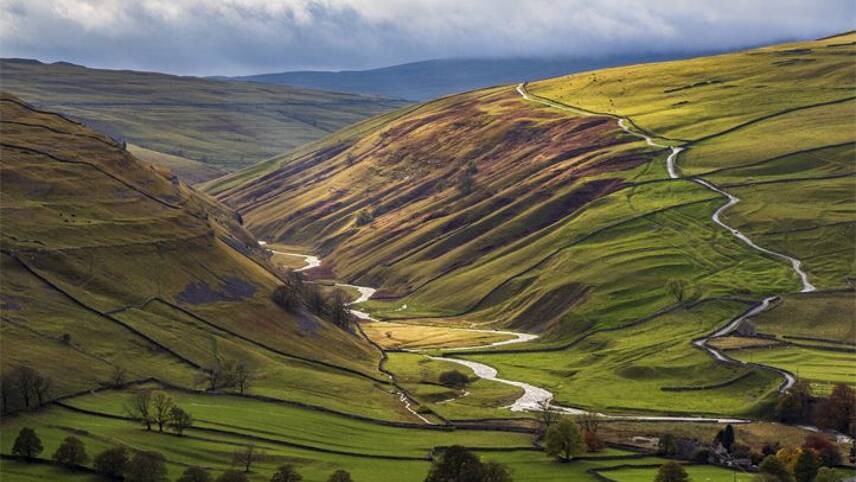Register for free and continue reading
Join our growing army of changemakers and get unlimited access to our premium content

The ENVI committee vote takes place on 29 November
That is according to a major new report from the Natural Capital Committee – an independent body tasked with assessing the state of the natural environment in the UK. The report reveals that the UK is not on track to meet any key conservation and restoration targets across seven key topics: air, freshwater, marine habitats, plants and wildlife, land and minerals.
In all but two of these categories – air and minerals – deterioration has been documented in the nine years since the 25-Year Environment Plan was published, the Committee claims. In these two categories, progress has been made, but has plateaued.
On freshwater habitats, the report cites research which concluded that none of the UK’s lakes or rivers met the Environment Agency’s requirement for ‘good’ chemical status in 2019. On land, the report highlights the fact that almost half of land in national nature reserves is not considered to be in a ‘favourable’ condition.
Soil is a particular concern, with deterioration resulting in costs of £0.9bn annually across England and Wales. Soil degradation makes farms more vulnerable to flooding and other extreme weather and hampers its ability to provide plants with nutrients.
The report warns that these negative trends are only likely to accelerate in the coming decades as the global temperature increases. While praising the Government’s decision to legislate for a net-zero target and its progress on the Environment Bill to date, it warns that more ambition and action is needed to safeguard UK nature amid the climate and nature crises and Brexit.
A key recommendation of the committee is for the Government to provide more funding to its Natural Capital and Ecosystem Assessment – a framework designed to assign value to natural resources and to measure any declines or improvements. The framework was developed with input from the Treasury.
The assessment should also be applied to nationwide surveys on the state of the insect population, the report recommends. A landmark study last year found that more than one-third of the world’s insects are endangered.
Additionally detailed are recommendations around the Office for Environmental Protection (OEP) – the UK’s post-Brexit watchdog. The body was meant to be created in late 2020 but the Commission has heard from Defra that an early 2021 date is now likely. In light of the fact that Natural England has been under-funded for years, the report urges Ministers to ensure the OEP is “properly” funded and resourced.
It also includes a call for the OEP’s remit to be extended to cover the entire scope of the Environment Bill, which has been subjected to several rounds of amendments and will soon be changed again to introduce legally binding targets on air, water, waste and biodiversity.
“Without such a role for the OEP, the ambition to significantly improve the environment could be softened in favour of other government priorities and lead to further stalling of progress in meeting the 25-Year Environment Plan objectives, undermining public confidence in the government’s green commitments,” the report states.
Summarising the report, the Commission’s Chairman Dieter Helm said: “We can be green and prosperous, but it will not happen by default.
“It is vital that we measure the state of our natural assets and then target interventions to improve the environment in a coherent way.”
A key year for nature
Biodiversity COP15 will be hosted in China shortly. In the run-up to the event, the UN recently opened a Leaders Pledge for Nature – a precursor to the organisation’s ‘Paris-Agreement-style’ deal designed to avert Earth’s sixth mass extinction – to world leaders.
Signatories to the Pledge commit to protecting 30% of their land-based habitats, while the Deal will also cover freshwater and marine habitats.
Some 26% of land in England is already covered by National Parks, Areas of Outstanding Natural Beauty and other protected statuses, meaning it is closer to the target than many other nations. But green groups have pointed out that areas with protected status have also experienced degradation in recent years, and that restoration is now needed alongside conservation to match the urgency of the problem. Moreover, programmes designed to further the protection of land in nations like Canada and Australia could infringe on indigenous peoples’ rights unless they are designed properly.
Nature was already slated to be a big year for the biodiversity movement in 2020 pre-pandemic by analysts from the likes of Positive Luxury and McKinsey. But the pandemic has pushed nature even further up the agenda, with many spending more time outdoors amid social distancing rules and realising the intersections of planetary health and public health.
Sarah George


Please login or Register to leave a comment.